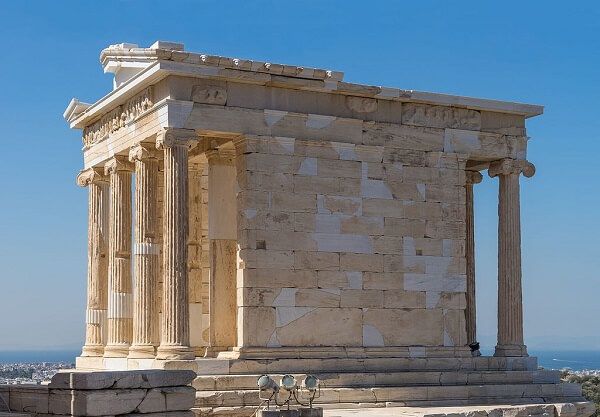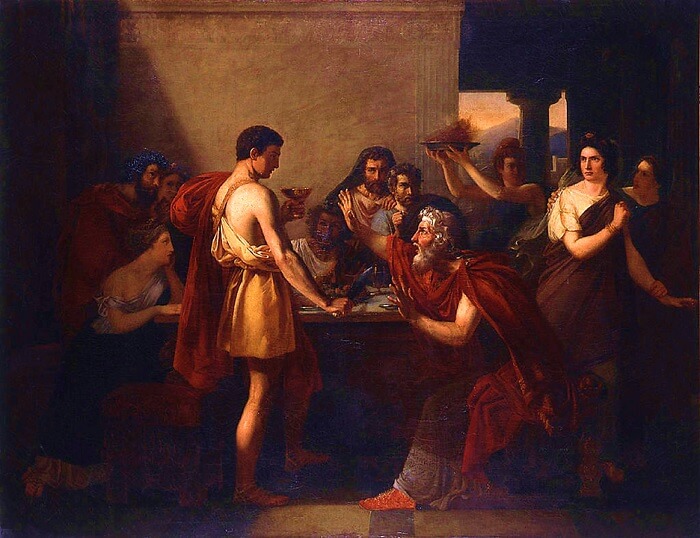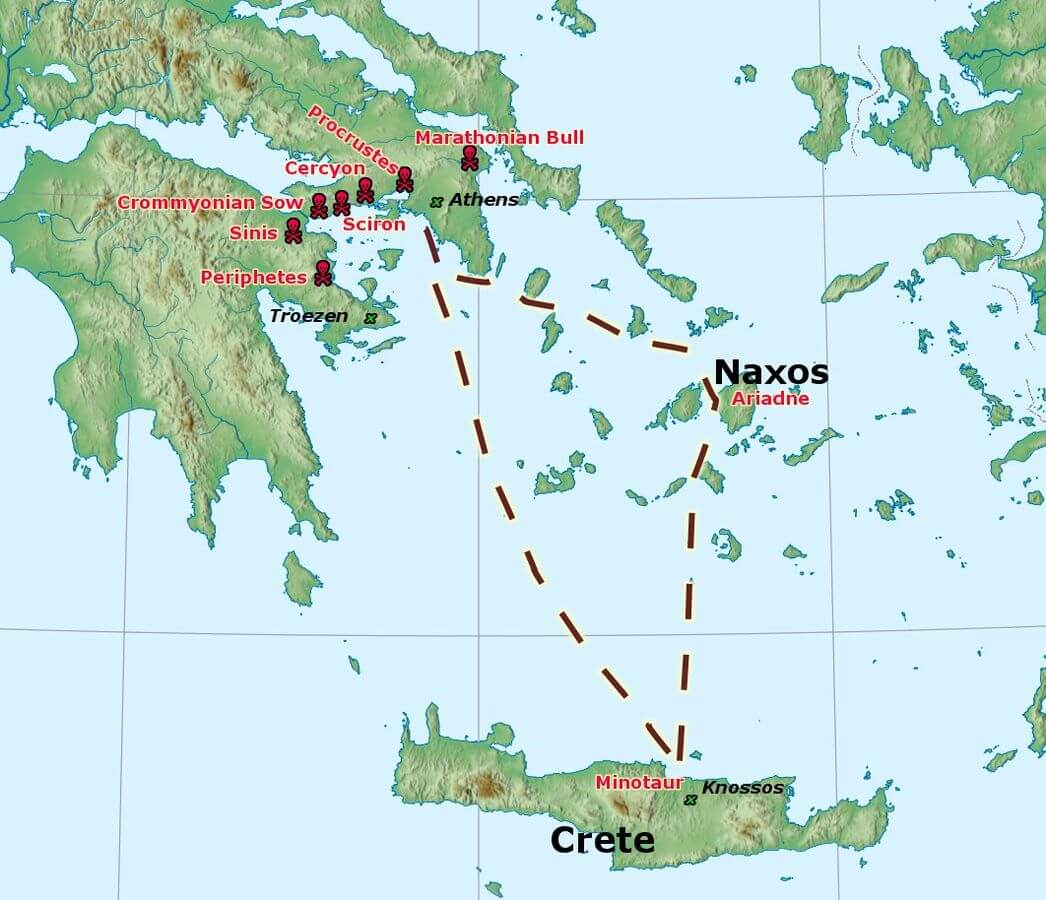Activity 1: Recite the Book Information
- Recite the name of the author, the title of the book, and the title of the chapter.
Activity 2: Narrate the Story
- Narrate the events aloud in your own words.
Activity 3: Study the Story Picture(s)
- Study the story picture(s) and verbally describe the relation to the story.
Activity 4: Map the Story
- In the story, Theseus travels from Troezen to finally reach the city of Athens.
- Trace the journey of Theseus thus far, from Troezen to Athens on the marked map of Greece.
- What do the red skulls and crossbones signify?
Activity 5: Playact Theseus in Athens
- Pretend you are Theseus being mocked by the butchers of Athens.
- Act out seizing four of the slaughtered oxen and tossing them over the houses.
Activity 6: Complete Written Narration

- Click the crayon above, and complete page 234 of 'Fourth Grade Prose: Written Narration, Dictation, and Review Questions.'
Activity 7: Complete Copywork and Dictation

- Click the crayon above, and complete pages 234-235 of 'Fourth Grade Prose: Written Narration, Dictation, and Review Questions.'
Activity 8: Match the Greek and Roman Names

- Click the crayon above, and complete page 235 of 'Fourth Grade Prose: Written Narration, Dictation, and Review Questions.'
Activity 9: Color the Mythological Character and the Celestial Body

- Click the crayon above, and complete page 236 of 'Fourth Grade Prose: Written Narration, Dictation, and Review Questions.'
Activity 10: Answer Written Review Questions

- Click the crayon above, and complete page 237 of 'Fourth Grade Prose: Written Narration, Dictation, and Review Questions.'
 Old Greek Stories
Greek Stories
Old Greek Stories
Greek Stories



 Old Greek Stories
Greek Stories
Old Greek Stories
Greek Stories







